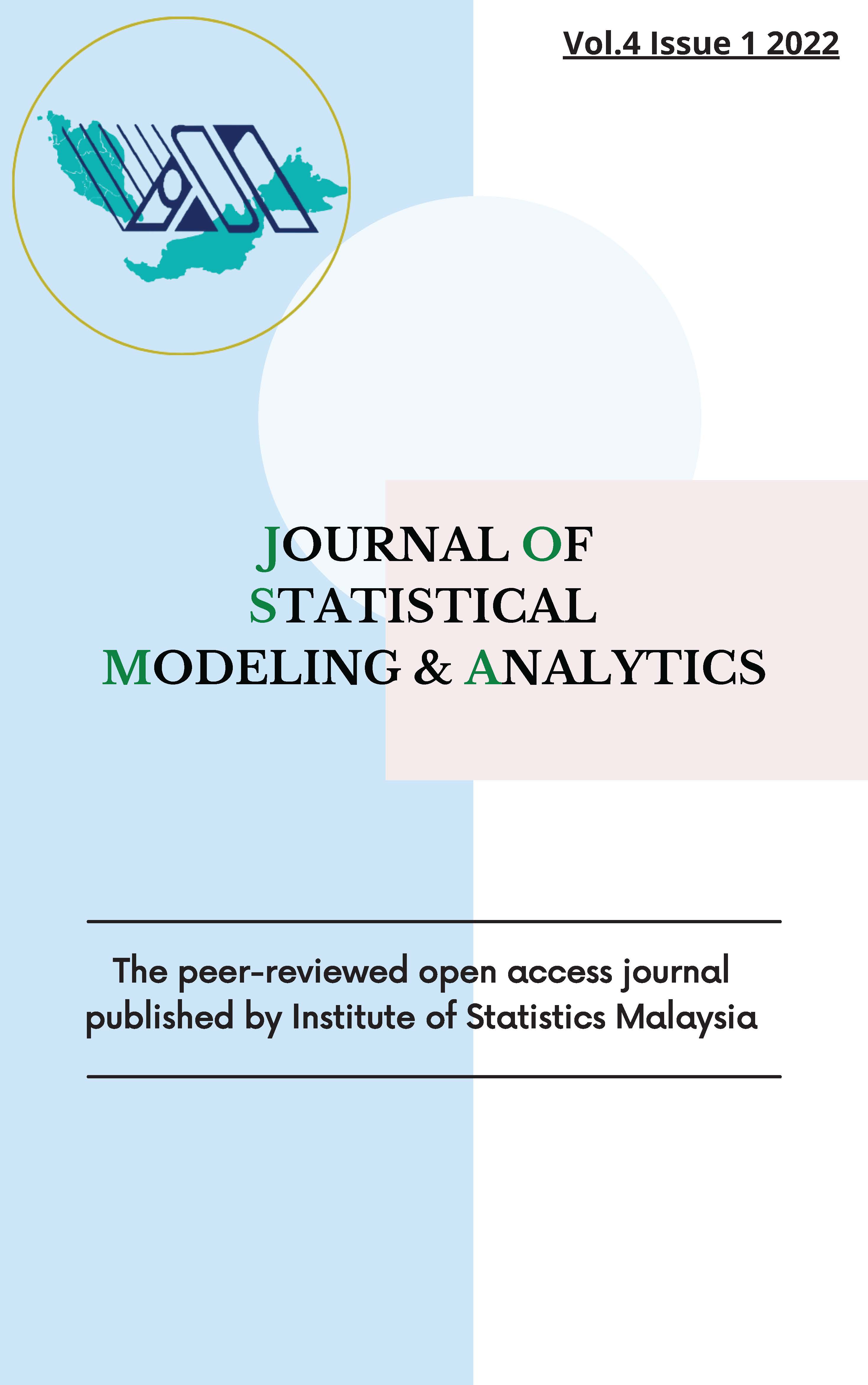Correlation and Regression Model for Physicochemical Quality of Groundwater in the Jaen District of Kano State, Nigeria
DOI:
https://doi.org/10.22452/josma.vol4no1.2Keywords:
Correlation coefficients, Drinking, Groundwater, Jaen district, Regression AnalysisAbstract
Thirty (30) samples of groundwater from various locations in the district of Jaen were obtained and analysed for drinking and other domestic purposes. Twelve (12) physical and chemical (physicochemical) groundwater quality parameters such as electrical conductivity (EC), pH, total dissolved solid (TDS), total hardness (TH), calcium (Ca), magnesium (Mg), nitrate (NO3), potassium
(K), zinc (Zn), chromium (Cr), copper (Cu) and Manganese (Mn) were selected and analyzed in this study. The conventional remote sensing techniques used for monitoring and estimation of water parameters are typically based on the spectral response or dispersion reflected from the water. An attempt was made in this paper to assess and estimate groundwater elements on the basis of regression
analysis. Using a correlation matrix to classify strongly correlated water quality parameters, Pearson's correlation coefficient (r) values are calculated. EC and TDS; Ca and Mg; pH and TH are highly correlated. The results show significant correlation between NO3 and Zn (r=0.860), TH and Zn (r=0.829), pH and Zn (r=0.808), TH and NO3 (r=0.732), pH and NO3 (r=0.686), Cr and Cu (r=0.635), NO3 and K (r=0.513), TH and K (r=0.500), indicate the increase in the pollution load due to industrial and anthropogenic activities. All physicochemical water variables in this study are significant at 1% and 5% level of significance. Groundwater is suitable for drinking and other domestic uses in the study area with reference to the requirements for the quality of drinking water set out in the Nigerian
Industrial Standard NIS and World Health Organization (WHO, 2011). The findings proved the effectiveness of linear regression equations for rapid water quality monitoring and estimation.


